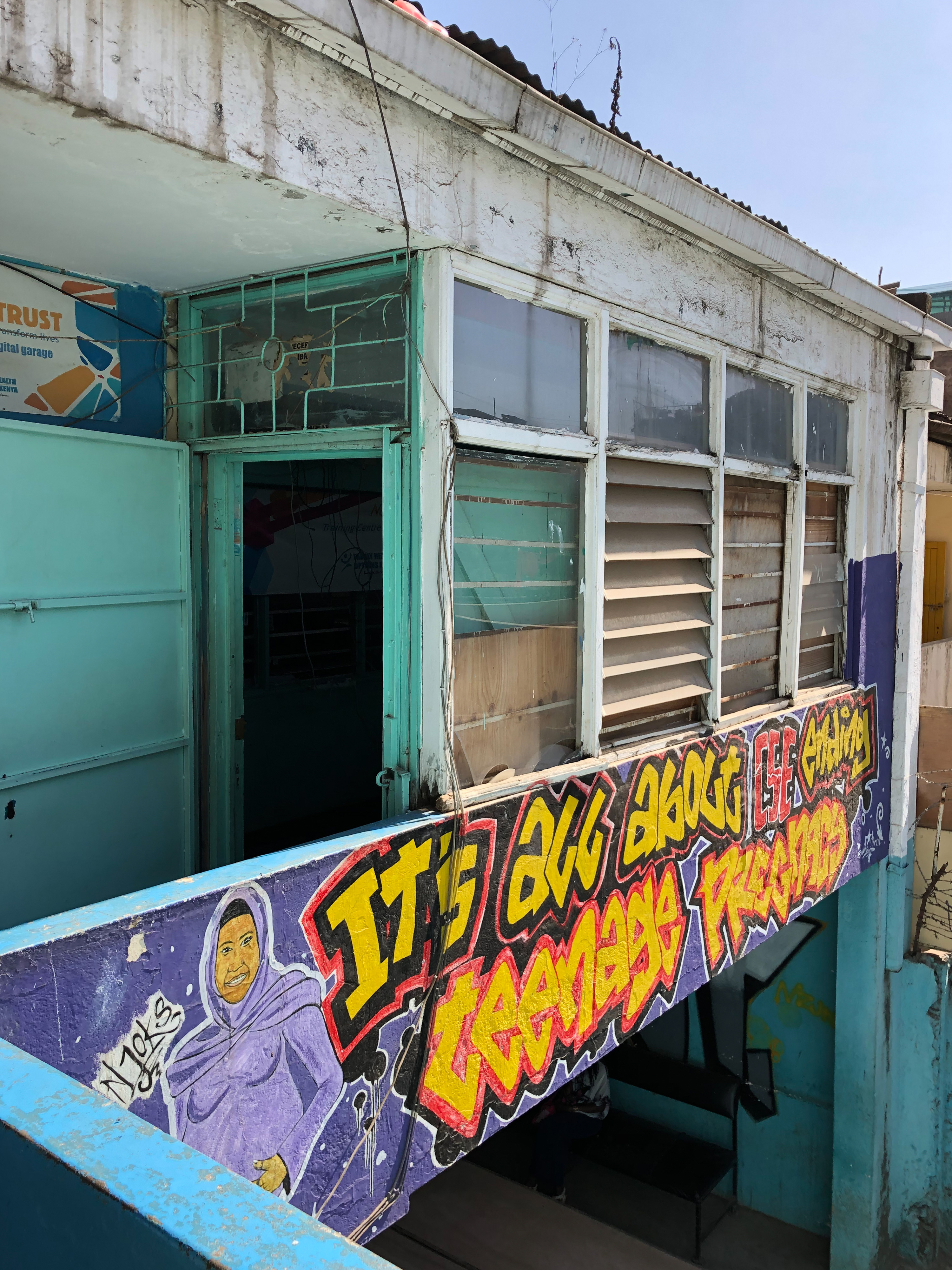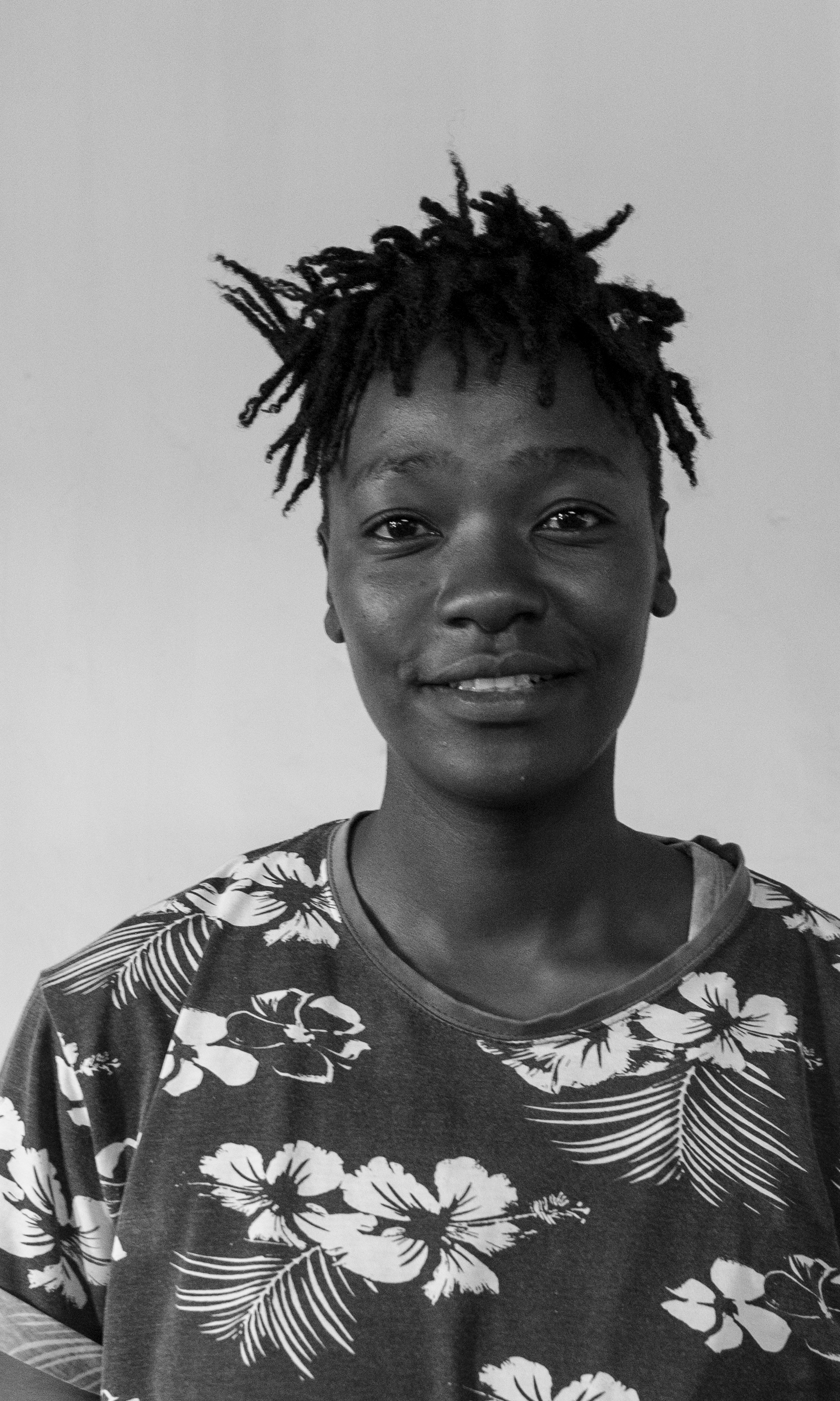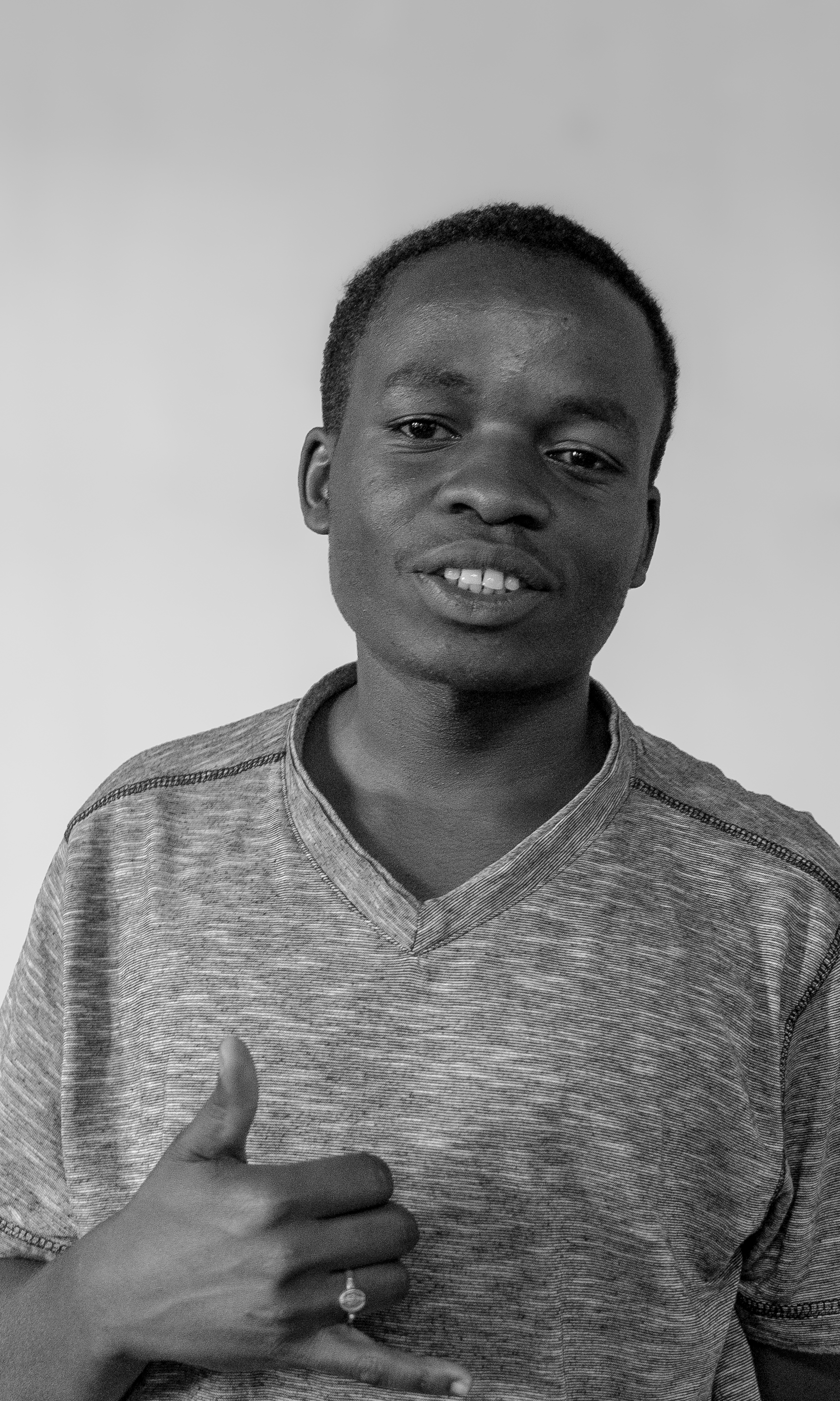HUMAN CENTRED DESIGN (2018)
Sexual Reproductive Health in Kenya> Empowering people through design
> User research, interviews and workshops
> Design Thinking
> Synthesising research to garner insights





Fig. 1 A role play workshop developed to explored attitudes towards sexual reproductive health - Nairobits Kibera, Nairobi, Kenya.
Despite renewed efforts to tackle Sexual Reproductive Health (SRH) in Kenya, uptake amongst its adolescents remains low. There is a high prevalence of teenage pregnancies and over 50% of new HIV infections effect 15-24 year olds. While clinics are readily available and often inviting, social spaces, the huge community stigma surrounding them prevents people accessing the information and protection they need. We took a human centred design approach, working with local designers, clinicians and Nairobi youth to understand the nuances of this complex problem. Our output was a movement to empower youth through drama and immersion. Giving communities permission to speak about SRH topics and thus release the stigma preventing youth from accessing SRH facilities.

Fig. 2 We took a human centred design approach, conducting interviews and workshops with clinicians, sexual health professionals and Nairobi youth.
Our starting point was the question “HMW improve the service delivery in health facilities to better benefit young people seeking SRH services”. By interviewing doctors and service providers it became quickly apparent that while the clinics needed improving, it was the community’s attitude towards them that provided the biggest barrier. Closely associated with the AIDS pandemic of the 1980s, to be seen going to a clinic is a sign of promiscuity and tight knit communities make anonymity an impossibility. To better understand the motivations, dreams and desires of Nairobi youth we designed a series of workshops exploring their experiences. We utilised various techniques from ecosystem maps to roleplay and storyboarding to broaden our knowledge and garner insights.

Fig. 3 Interviewing doctors and service providers it became quickly apparent that while the clinics needed improving, it was the community’s attitude towards them that provided the biggest barrier.
Upon synthesising our research two clear insights emerged. Adolescents are driven by the promise of a good future, possessing a tenacity to learn, read and perform, but also an entrepreneurial flare to hustle and make money. There is also a huge problem with information dissemination. The silence surrounding sex creates a psychological barrier that prevents youth from learning from their elders and visiting clinics. This led us to reframe the question – “HMW us the strong community bond in Kenyan society to improve the impression of SRH services and convey safe practice?” With the hypothesis that through performance and immersion we give communities permission to speak about sex and release the stigma surrounding clinics.



Fig. 4 We found young Kenyans are driven by the promise of a good future, possessing a tenacity to learn and perform.
Our output drew on the success of our early drama workshops but removed our role as facilitators to allow them to scale for wider participation and impact. Working closely with Tosh, Ali, Stephanie and Lewinsky we co-wrote a play, by Kenyans, for Kenyans. A pair of star-crossed lovers… a familiar story retold in the voices of the Nairobi youth. To ensure inclusivity for all in a country with multiple languages and varied literacy levels, our play guide is written both in Swahili and English alongside a visual narrative.

Fig. 5 The play provides a platform where sexual health topics can be broached without fear of reprisal or judgement, creating a new culture of openness.
By working with local organisations like Nairobits we provide free access to the play guide, poster and printable tickets online. The youth, driven by their desire to have a voice and generate a small income, produce and perform the play, selling tickets to their local community. The play provides a platform, removed from personal experience, where sexual health topics can be broached without fear of reprisal or judgement.

Fig. 7 Our play guide and promotional poster are freeto access and download online.
We hope to create a self-sustaining movement across Kenya. We devised a viral “Condom Challenge” to spread awareness of our mission and a YouTube channel was created to document performances and inspire others to follow in their footsteps.
Fig. 8 Our co-writers Tosh, Ali, Stephani and Lewinsky introduce Usinisunde Nichapie on our YouTube channel.
Download our Play Guide ︎︎︎
Download our promotional Poster ︎︎︎